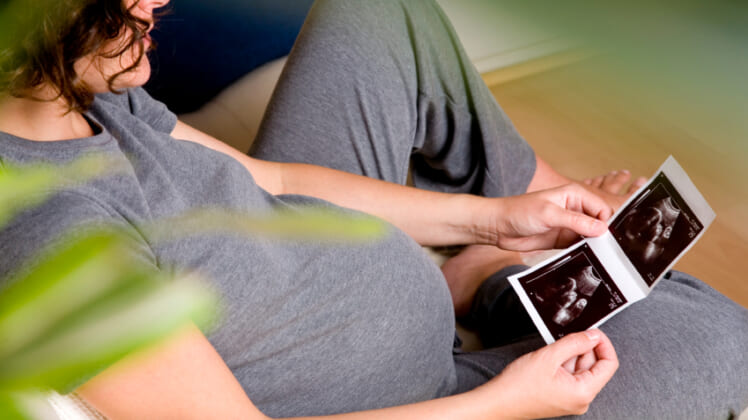
[bc_video video_id=”5524490121001″ account_id=”5374160583001″ player_id=”HJtnW6IQW”]
Is it normal to have constipation during pregnancy?
Unfortunately, yes. Throughout your pregnancy, hormonal changes can result in sluggish digestion. Then as your uterus grows, it compounds the problem by putting more pressure on your intestines and rectum.
To understand the problem, it helps to know how your digestive system works. As food moves through the colon, muscle contractions push it along while water is absorbed, creating a semi-solid waste. If the colon absorbs too much water or if the muscle contractions are too slow, the result is the hard, dry stools characteristic of constipation. So the key is to keep things moving.
What can I do to prevent constipation during pregnancy?
- First, get more fiber. According to the National Center for Health Statistics, most Americans eat between 5 and 14 grams of fiber daily, considerably less than the 20 to 35 grams recommended by the American Dietetic Association. The main culprit? Refined and processed foods from which the natural fiber has been removed. To combat this problem, eat more foods that are high in fiber, such as plenty of fresh fruits and vegetables (up to 9 servings a day if possible), fiber-rich breakfast cereals, whole-grain breads, and beans. If you don’t normally eat much fiber, though, start slowly: Too much all at once could cause bloating and flatulence.
- Don’t skimp on water. Experts recommend that pregnant women drink at least eight glasses of water a day; often people who are constipated aren’t getting enough fluids. And don’t forget that old standby, prune juice — there’s a reason why your mother told you it was good for constipation.
- Get some daily exercise. Nothing gets things moving like, well, moving. Any kind of exercise — walking, running, swimming, bicycling, even stretching or yoga, can all help ease constipation. They’ll leave you feeling more fit and healthy, besides.
- Consider a fiber laxative. Your practitioner may suggest a fiber-based stool softener, such as Metamucil or Citrucel, which helps your intestines absorb water and makes your stools softer and easier to pass. But stay away from other types of laxatives unless your doctor specifically recommends them — your body can become dependent on them.
- Check in with your doctor. In pregnancy, iron-containing prenatal vitamins or supplements can be a common culprit. That doesn’t mean you should stop taking iron if you get pregnant, but you should troubleshoot with your doctor.
- When you need to go, go. When you’re harried and on the run, it’s common to tell yourself to wait to use the bathroom. But if you have a problem with constipation, heed the urge. The longer you delay, the harder it is to go.
Should I worry that constipation during pregnancy might be serious?
While constipation isn’t pleasant, it’s not really dangerous either. The main concern is that constipation can cause straining that could lead to hemorrhoids (swollen veins in the rectal area). These can be itchy and annoying or even downright painful. But luckily there are strategies for soothing hemorrhoids.
If your constipation is severe and persistent, or if it’s accompanied by other worrisome symptoms such as vomiting or bloody stools, you should see a doctor: You might be taking medications that are causing constipation, or it could be a sign of a more serious problem. But in general, both constipation and hemorrhoids should quickly pass after your baby is born.
Last Updated: March 11, 2015
Pregnancy Health Library Copyright ©2015 LimeHealth. All Rights Reserved.
